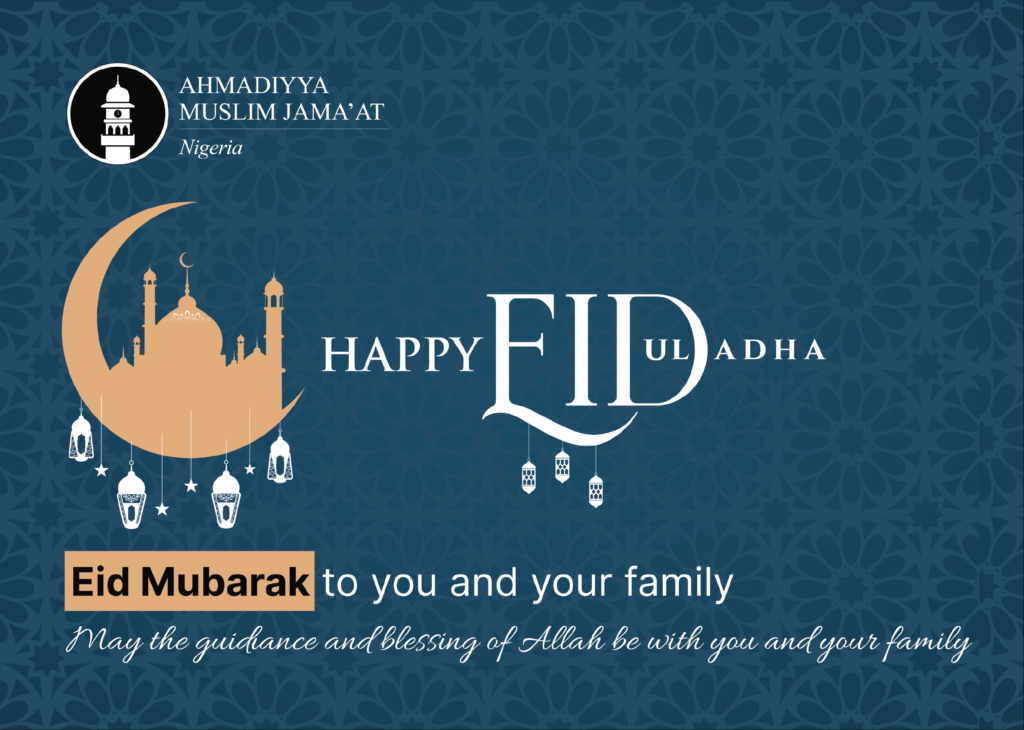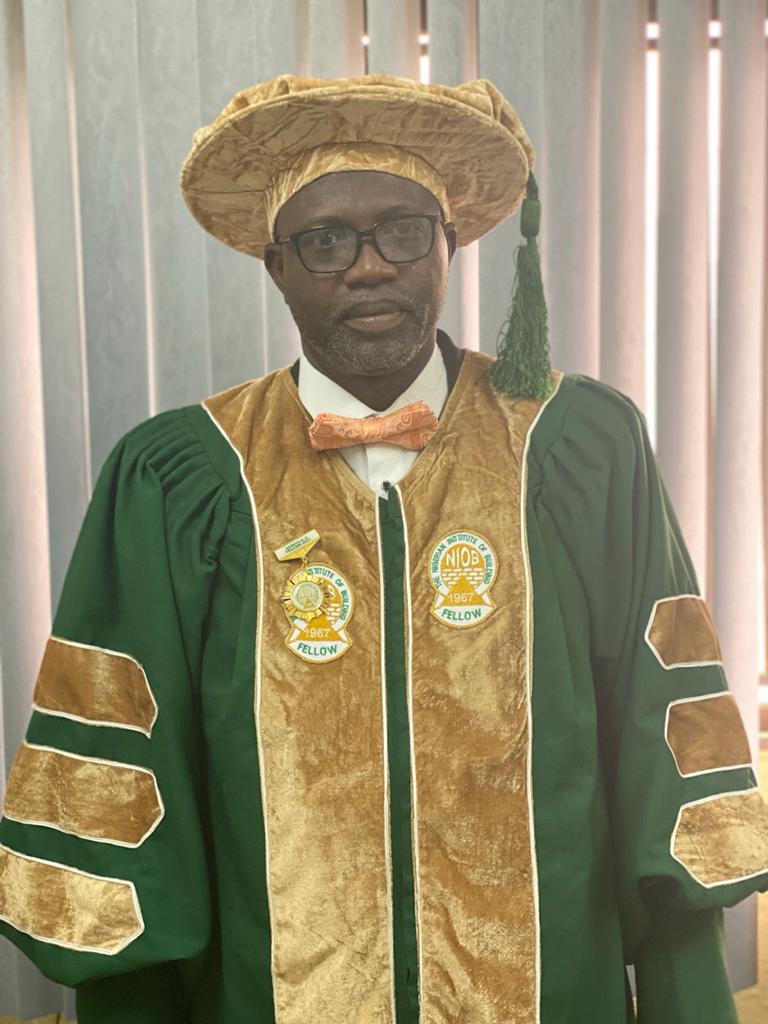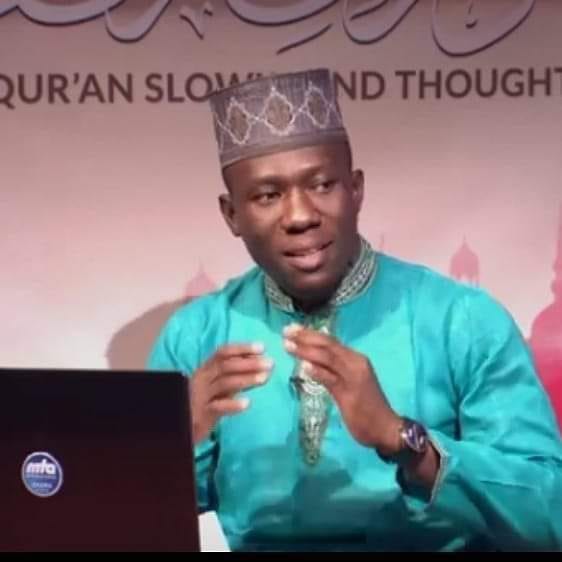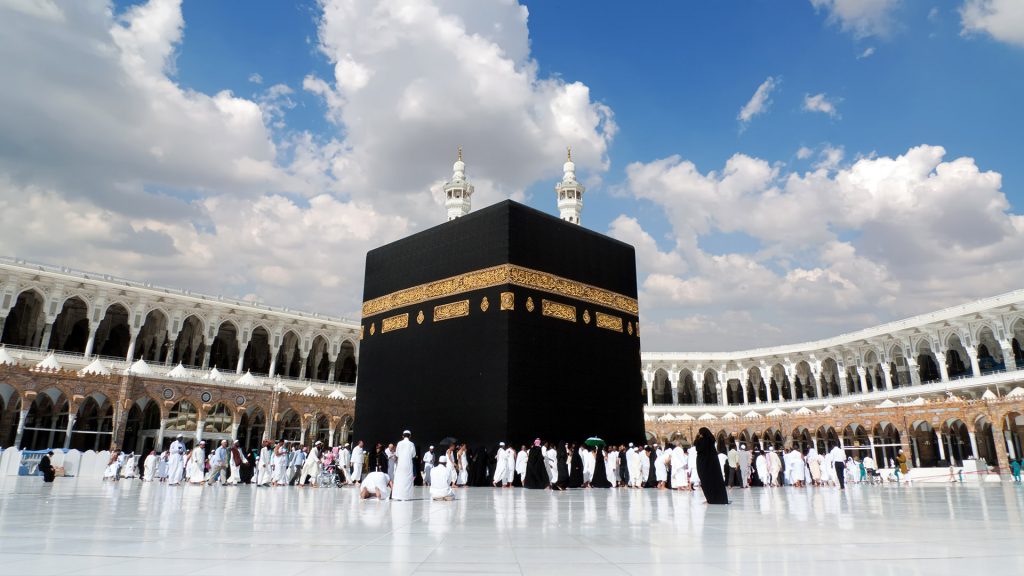Ahmadiyya New Clinic in Kano Underway

The Ahmadiyya Muslim Jamaat of Nigeria has commenced the building of another Clinic in Kano for more improved health care services to the people of the State. The foundation laying ceremony was performed by His Royal Highness, Alhaji Aminu Ado Bayero, the Emir of Kano, the Amir Ahmadiyya Muslim Jamaat Nigeria, and the representative of Kano state Governor, the Commissioner of Health at the Ahmadiyya Muslim Jama’at complex along Zaria Road opposite the Kano Economic City. Once the new Clinic is completed, kano state will have three medical facilities and two schools for the overall benefit of the populace. Historically, the Foundation stone of the first Ahmadiyya Clinic in Kano was laid by late Royal Highness Alhaji Ado Bayero on 28 Dec 1968. It has now been upgraded to Ahmadiyya Hospital Kano. Before that, on 14 October 1967, Alhaji Aminu Kano; who was then the Federal Commissioner for Telecommunication visited Ahmadiyya Dispensary Apapa under the management of Retried Lt. Col Dr. M Y Shah described the activities of the Dispensary as “Wonderful work for humanity and peace.” On 19 February 1974, His Excellency, Alhaji Audu Bako, the Executive Governor of Kano State laid the foundation of Ahmadiyya College in Kano when Maulana Ajmal Shaid was the Amir of Nigeria. He was present at the occasion. This Secondary School has attracted many local and international awards to Kano through academic and sports laurels. Ahmadiyya Understanding of Islam The Amir, Head of Ahmadiyya Muslim Jamaat of Nigeria, Barrister Alatoye Folorunso Azeez used the occasion to reiterate the essence of understanding Islam from the perspective of the Ahmadiyya Muslim Community to the effect of service to humanity in all ramifications. He stated that the Ahmadiyya Muslim Community believed that Almighty Allah sends the Holy Prophet Muhammad as a mercy unto mankind. Therefore, in addition to upholding the five pillars of Islam and six articles of faith, a Muslim preoccupation is to be a mercy unto mankind by making life easier for them, to serve Allah in an atmosphere of peace. Accordingly, the Jamaat has a Non-Governmental Organization called Humanity First whose preoccupation include: 1. Global Health for all by building Hospitals and Clinics 2. Knowledge for All by building Schools 3. Orphanage Care 4. Water for life 5. Gift of Sight 6. Food security 7. Refugee Resettlement 8. Community Care; and 9. Disaster Relief. He noted that Humanity First through the present Medical Director of Ahmadiyya Hospital Kano has treated thousands of people on the “Gift of Sight “ scheme free of charge. Similarly, through the Principal of Ahmadiyya College Kano, Humanity First had sunk many boreholes in the suburb of Kano metropolis to provide drinkable water to those environments. Barrister Alatoye equally said that the Founder of Ahmadiyya Community laid emphasis on Islam as a religion of peace, hence the current Khalifa, spiritual head of the Ahmadiyya Muslim Community globally is preoccupied with how the world will achieve global peace and has made several tours before the Covid 19. Nigeria was one of the countries on the list before the outbreak, hence the visit was halted. His key message during the tours is how the world will embrace justice and peace and he has written many books on this. The Amir appreciated the cordial relationship among the Palace, the Kano State at large, and the Ahmadiyya Muslim Jamaat for the realization of sustainable developments through the provisions of a Hospital, equipped with ultra-modern facilities, unique primary and secondary schools, and now a new clinic in Kano alone. Both the Emir of Kano and the Kano state government equally appreciated the gestures of the Ahmadiyya Muslim Jamaat of Nigeria.
2021 EID-UL-ADHA MESSAGE: OBEDIENCE TO THE WILL OF ALLAH – THE PEAK OF SACRIFICE

Ashhadu anlaa ilaha illallah wahdahu laasharikalahu wa ashhadu anna Muhammadan Abduhu warasuluhu. Ama’bad fauzubilliahi minashaitaani rajeem, bismillahi Rahmani Raheem. What is Eid-ul-Adha Eid-ul-Adha is a “feast of sacrifice” or submission to the wishes or will of Allah celebrated on the 10th day of Dhul Hijja or the 12 Lunar month. It means total submission to what Allah wants or wishes or will or directs. It has two components. The smaller component is the sacrifice or killing of ram. This smaller one reminds us annually or points to a bigger sacrifice. The bigger sacrifice is the sacrifice of one wishes, will, passion, ego, and pride for the wish of Allah which is very difficult. To surrender one’s disobedient tendencies, passion for greed, or selfishness for the instructions of Allah is very difficult except for the righteous or God-fearing. Elements of Sacrifices All praise belongs to Almighty Allah who has made us witness the 2021 Eid-ul-Adha or feast of sacrifice amidst various global and national challenges. This requires a high level of spirit of obedience to Allah. Without the spirit of respect, the spirit of obedience would not work. Without the spirit of humility, neither spirit of respect nor obedience will work. And without the spirit of righteousness or godliness, one cannot be humble. These are essential components of sacrifice. You cannot offer acceptable sacrifice without being righteous. Allah will not accept it. It is not all sacrifices that Allah accepts. In Suratul Maidah 5. 28 – Almighty Allah says that: ‘………….Allah accepts only from the righteous.” اِنَّمَا یَتَقَبَّلُ اللّٰہُ مِنَ الۡمُتَّقِیۡنَ…. Origin of Eid-ul-Adha Sacrifice Eid-ul-Adha or the festival of Sacrifice commemorates the obedience of Hazrat Ibrahim (as) and his son Hazrat Ismail(as) to the commandment of Allah. Hazrat Ibrahim(as) had a series of dreams in which he saw himself sacrificing his eldest son Ismail. He inferred that it was perhaps the will of God that he should sacrifice the life of his son. Hazrat Ibrahim(as), being most obedient to God, was about to sacrifice the life of his son Ismail, when God commanded him to stop and gave him the good news that he had indeed fulfilled His command. God was so pleased with Ibrahim because of his obedience that He multiplied his progeny into billions. He was also given the great honour of being the forefather of the Holy Prophet of Islam(sa). Those who are able to offer the sacrifice should remember the significance of doing so, as succinctly stated in chapter 22:38 of the Holy Qur’an: Their flesh reaches not Allah, nor does their blood, but it is your righteousness that reaches Him. Thus has He subjected them to you, that you may glorify Allah for His guiding you. And give glad tidings to those who do good.” The act of sacrifice is symbolically reminding the person who offers it that as the animal is inferior to him so he, also, is inferior to God and should, therefore, be ready to sacrifice himself and all his personal interests and inclinations for the sake of God when he is required to do so. The same applies to a Muslim who desired to offer the sacrifice but could not, for economic reasons. The attainment of righteousness should be the goal of every Muslim. The Holy Quran further states: Verily the most honourable among you in the sight of Allah is the one who is most righteous among you. (49:40) Eid-ul-Adha is an occasion on which Muslims everywhere are encouraged to renew their commitment to making every kind of sacrifice for the spiritual, moral, social, and economic uplift of mankind and especially their own. If they make it a common cause and strive to manifest in themselves the attributes of God in accordance with the teachings and guidance of the Holy Quran and teachings of the Holy Prophet then, indeed, the message of Eid-ul-Adha would have borne fruit. Referring to attaining Taqwa and excelling in spirituality, the founder of the Ahmadiyya Muslim Community, the Promised Messiah(as) said that we should love Allah as if we have died in His way. Just as we slaughter animals, we should consider ourselves slaughtered in the way of Allah. When anyone’s Taqwa is less than this, then it is not a sufficient level of Taqwa. The significance of Eid-ul-Adha is obedience to the will of Allah and killing or suppression of one passion or greed. The current World-wide Head of the Ahmadiyya Muslim Jama’at in His Message of Eid-ul Adha said that “It is a reminder that one should sacrifice oneself for a greater good. This greater good that a Muslim should always be ready to sacrifice oneself for is the Almighty God, by way of sacrificing their time, wealth, honour, and life.” He further said “Understanding the true spirit of sacrifice is even more important in this day and age where some nations are usurping the rights of others; where the blood of human beings is being wasted for minor worldly goals. On the Eid Day – Remembrance and Gratitude – Eid Ground and Covid-19 Remembrance of Allah and gratitude to Him is the hallmark of that day. There is the exaltation of Allah to and from the Eid praying ground. One significant aspect of Eid-ul-Adha is the slaughtering of animals. On the day of Eid those Muslims who can afford to sacrifice an animal are enjoined to do so after Eid Prayer. However, this aspect should not be taken as a do-or-die affair. The offering of animal as a sacrifice is only incumbent upon those who can afford to do so. With the prevailing increase in prices of all consumables including animals, many Muslims may not be able to buy rams for the Eid. The Almighty Allah knows our individual capacity and does not burden us beyond it. No Muslim should resort to un-Islamic means to offer this sacrifice. We are grateful to Allah who out of His infinite mercy has given us the privilege to witness this year’s Eid-ul-Adha. We are
BLDR TOWOLAWI EMERGES A FELLOW OF THE NIGERIAN INSTITUTE OF BUILDING

Al-Hamdu Lillahi Rabbil-‘Alamin Congratulations to Bldr. ASIMIYU-TOWOLAWI BASHIR-UD-DIN S. (FNIOB), on your induction into the College of FELLOW OF THE NIGERIAN INSTITUTE OF BUILDING on Tuesday 13th July 2021 @ International Conference Center Abuja. The Nigerian Institute of Building (NIOB) is the professional body for Builders and those who are about to be engaged in the Building Profession. The Institute has challenged new fellows to live up to the high expectations of society. NIOB president, Mr. Kunle Awobodu, and the Chairman of its College of Fellows, Mrs. Adebolanle Araba gave the charge at the first-ever virtual induction of members into the fellowship cadre of the institute.
AHMADIYYA GRADUATES NINE MISSIONARIES

The Ahmadiyya Muslim Community, Nigeria Branch has graduated nine (9) Missionaries at its School of Theology (Jamiatul-Mubashireen) located at Ilaro, Ogun State. The graduands who had successfully completed their four-year programmes comprised of five (5) Nigerians, three (3) Beninoise, and one Cameroonian. Their names are Adeyemi Habeebullah (Nigeria), Apooyin Abdulroqeeb (Nigeria), Gongola Abbas (Nigeria), Badrudeen Abdul Azeez (Nigeria); Ajakaye Mujtaba (Nigeria); Hafiz Ayeroumi Abdul Kabir (Benin Republic); Hafiz Ibrahim Shafii’ (Benin Republic); Isa Alabi Mustapha (Benin Republic) and Nuhu Yusuf Baba (Cameroon). Alhaji Alatoye Folorunso Azeez, the National Head of Ahmadiyya Muslim Jama’at of Nigeria who was the Chairman of Convocation Ceremony enjoined the newly graduated Missionaries to live up to expectation by displaying attributes and characters of a true reformer. Barrister Alatoye also urged the new Missionaries to always upgrade themselves morally and educationally by making researches and professing solutions to world crises. He added that it can only be possible through fervent prayers. “Today, I congratulate you all on your well-deserved convocation ceremony after four years of rigorous training at Jamiatul-Mubashireen. You have all chose to be reformers, therefore you should always display good attributes of reformers. Your work is a blessed and professional one. It has both worldly and divine rewards. You are on the track to teach the people to be Godly.” “Missionaries are researchers. You are expected to research on lasting solutions to the challenges facing the world. You must then support your solutions with prayers.” “You must preach with the goodness of your behaviors. Also train and retrain yourselves to be better. Always follow the right path and guard against evils from money and women. Above all, go to the field to reform the people with good characters and prayers,” the Amir stated. The National Head also sounded a note of warning to Jamia students generally in respect to the rules and regulations of the institution. His word: “The aim of the institution is to produce reformers of good repute and proud ambassadors of Ahmadiyya Community. Any candidate coming to Jamia must be steadfast, God-fearing and upright. We can’t afford to produce unfit missionaries to the society.” “When you are opportuned to be in Jamiatul-Mubashireen, do not attempt to violate the rules and regulations, the punishment is very stiff. Please follow all the rules guiding the institution.” The Acting Missionary Incharge, Maulvi Abid Abdul Waasi enjoined graduands to always request His Holiness for prayers and seek for his guidance on all their daily routines. Certificates of Excellence were later given to the graduating students. Academic and sporting event prizes were also presented to outstanding students. Prominent among the guests include the National leader Majlis Ansarullah Ahmadiyya Nigeria (Elders’ Forum of Ahmadiyya Community), Alhaji Abdul Waheed Adeoye and National leader Majlis Khuddamul Ahmadiyya Nigeria (Youth Wing), Dr. Sanni Taofeeq.
ALHAJI OWOLABI ELECTED AS CHAIRMAN NCRIB

Alhaji Abbas Owolabi has emerged the Chairman Nigeria Council of Registered Insurance Brokers (NCRIB) Abuja Chapter. Based on his contributions to the body over the years, his experience cum dexterity in the profession, Alhaji Owolabi was unanimously elected as the head of the body, succeeding Mr. Lateef Omoladun whose tenure expired earlier in the year. NCRIB was founded in 1962 and incorporated in 1967 as a non-profit making organization backed by Act 2003. Its aims and objectives is to maintain central organization for all insurance brokers in Nigeria, watch over legislation, afford means of arbitration on, or for settling disputes, collaborate with government and various institutions and professional bodies, organise conference, seminars and workshops for insurance brokers as well as formulate standard of practice and conduct of members. The new chairman whose company – Hansworth M.A. Insurance Brokers Ltd., registered with NCRIB since 2001 had earlier served as the Vice Chairman for two consecutive terms. Alhaji Owolabi promised to lift the body to greater heights and therefore solicit support from all and sundry to actualise the dream. “My plan as the Chairman is to improve on the relationship with the insuring public by organising road walk to sensitize the public, radio and television shows. I also plan to improve on the I.T. skills of our members as well as improving the general welfare of our members by effecting certain policies on insurance,” Alhaji Owolabi noted. Alhaji Owolabi is an active, dedicated, and responsible member of Ahmadiyya Muslim Jama’at of Nigeria, Abuja Branch. He was formerly the Abuja President of the Branch.
REFLECTING ON MY JAMIA GRADUATION DAY AND THE MISSIONARY CAREER

By Al-Hafiz Yunus Omotayo It’s always exciting reminiscing the day of my graduation from Jamia Ahmadiyya (Theological Institute established by the worldwide Ahmadiyya Muslim Community for the training of Missionaries) at Ilaro, Ogun State, Nigeria, which took place 15 years ago, precisely on 16th July, 2006. Indeed, it forever remains an historic, significant, inspiring and catalytic event in my life. Historic, because the graduation symbolized my departure from a student life to my formal induction, along with my colleagues, into the Missionary profession as life-devotees in the service of the religion of Islam. Significant, because it hallmarked the beginning of a professional career which champions the mission of divine prophethood, sparking the challenge to imitate the exemplary prophetic moral and spiritual life to be able to win the hearts of humanity. Inspiring and catalytic, because it transported me to the plateau of self-realization and consciousness that to strive for distinction and excellence in one’s study, in one’s work and in one’s career is not only rewarding in the final analysis, but also what actually defines the true meaning of meaning when it comes to actualising life’s goals and destiny. My reflection goes back to 2003 AD, the year that my academic adventure began in the Jamia. Over twenty students, drawn from the six geopolitical zones of Nigeria, have been admitted to undergo the rigorous missionary training. However, three years later, on the day of the graduation, only six of us have got the fortune and the grace of Allah to make it to the end of the course. We were: Adam Garba, Adeleke Ismaīl, Ajibola Abdullah, Aliyy Ishaq, Yunus Omotayo and Yunus Fayomi. The rest have had to drop out, for one reason or the other. Although I was born an Ahmadi Muslim, but I didn’t have the opportunity to learn about Islam during my childhood, because I found myself in a Christian-dominated society where my socialization at the peer and age group levels, as well as, both my primary and secondary educational adventure saw me learning Christian Religious Knowledge (this has, however, turned out to be a blessing in disguise, anyway). My study of Islam only began from the level of self-study towards the end of my secondary school and continued in my post-secondary years well to the year of my admission to the Jamia Ahmadiyya. Hence, in the spirit of the Qur’ānic imperative: “And the bounty of thy Lord, proclaim;” I’m ever humbled with deep sense of gratitude to Allāh to reminisce and relate the grace of Allāh Who enabled me to emerge successfully from the Jamia. Thus, the 2006 Jamia Convocation saw my worthless self receiving the prize for the best graduating student. This unassuming boy also bagged a certificate of Tahfizul Qur’an (Memorization of the Qur’ān), and a prize for being the first student to become a Hafizul Qur’ān (honorific title for a memorizer of the Qur’ān) in the history of Jamia Ahmadiyya Nigeria. And according to the then Missionary In-Charge of Nigeria, Maulana Abdul-Khalique Nayyar Sahib, it was second to the trail-blazing feat achieved by respected Ahmadiyya’s Mufti Silsila, Maulana Kahloon Sahib, in the world history of Jamia Ahmadiyya International. More so, the event also cheered my humble self with a number of prizes from the sport fiesta of the year: 1st position in 100 meters race; 1st position in 200 meters race; and 1st position in table tennis (single), among other prizes. I could still recollect that I represented the final-year level in the Extemporary Speech Competition organized for the year. I was the Ra’ees (the Students’ President) of the 2006 set. The pressure to win the competition was indeed challenging to me: how would one relate the story that a student representing a lower level defeated the Ra’ees who was representing the final year level? The day arrived and the event commenced. My turn came and I was called forward to pick my topic. I did. To my surprise, however, I read the question that asked me to speak on “My Favourite Teacher.” I was shocked. All my lecturers were seated. The thought of who should I choose among them dominated my mind. They, too, were staring at me; perhaps, thinking who will Yunus speak on as his favourite teacher. For a few seconds, I remained mute, confused and indecisive. I felt if I should choose one, how would the others feel about it and me? I knew I have had to take a decision not just inevitably, but also wisely as well; so as to, at best, please them all, or, at worst, play safely. Then the thought flashed my mind: why not speak on the Holy Prophet Muhammad (saw) as my favourite teacher! Now, I felt I’ve gotten the best option in the best prophet who is the ultimate favourite teacher of the people of all time and clime. It worked excellently. I made it and added another 1st position prize for Extemporary Speech Competition! Jamia Ahmadiyya, through its broad curriculum and esteemed and erudite lecturers, taught us Islam: its theology, jurisprudence, law, history and the Scholastic Dialectics. It took us on an academic voyage to extensive comparative religious studies. It engaged us in philosophical and psychological studies. We were taught world languages: Arabic, English and Urdu! We were trained in Islamic morality and spirituality and in the principles of dedication to the service of the faith. We were taught that a Missionary must be a dictionary, and should learn something about everything. We were taught to see ourselves as both leaders and servants of the faith and of the faithful. More so, we were made to undergo rigorous physical training and dignity of labour. We were instructed to serve as builders of personalities, to see ourselves as social workers and, above all, as callers to the oneness of Allāh and the prophethood of Muhammad (saw) – the Seal of the Prophets. However, at the end of the course, just when we were about to begin to breath a sigh
REMINISCING MY QADIAN JALSA EXPERIENCE

Maulvi Nurudeen Okubena By the special grace and mercy of the Almighty Allah, I was privileged to attend the 2018 Jalsa Salana Qadian, India. It was actually my first presence and experience in Qadian, the birthplace of Hazrat Mirza Ghulam Ahmad (as), the Promised Messiah and founder of the worldwide Ahmadiyya Muslim Community. As an African Missionary leaving the shores of Africa for the first time, I was filled with happiness and a great aspiration to see Qadian. On arriving at Qadian after a journey of several hours on road from New Delhi, and despite witnessing such cold weather for the first time in my life, the sight of Qadian was indeed pleasing and I was more pleased when I saw more than thirty (30) fellow Africans at the Conference with a very high spirit and great enthusiasm to participate in all the Jalsa proceedings. I was exceptionally marvelled with the spirit of brotherhood at the Jalsa and, most especially, with the high spirit of sacrifice displayed by the workers at the Convention. Both the young and old were always ready to offer every sacrifice for the comfort of the guests of the Promised Messiah (as). The volunteers on security duties were always there at every moment, even in the extreme cold of the night. May Allah reward them all abundantly. One great thing about Qadian was that everyone meets each other with cheerfulness and happiness. Most especially when some of our Indian/Pakistani brothers realised that an African Missionary, like myself, could speak and understand the language of the Promised Messiah (as); they all showed great love and affection. Another wonderful scenario I witnessed at Qadian was that, despite the extreme cold weather, you would find people very early in the dawn trooping in large numbers to participate in the Tahajjud (the supererogatory night Prayer). I could remember that while there, I tried on so many occasions to observe prayers at the Mubarak Mosque but, on every occasion, I was told the place is filled up. However, I eventually had the opportunity to do so. Alhamdulillāh! It was indeed pleasing to have the opportunity to pray at Baitu Dua, Baitul fikr and several other rooms of the Promised Messiah (as). One surprising fact is the enthusiasm and zeal in every attendee to get an opportunity to pray in these holy rooms, and one could see a feeling of contentment and conviction of acceptance of prayers in the countenance of everyone who had had the opportunity of praying there. While in Qadian, considering the distance we traversed to reach there, one thing that always struck my mind was how the message of the Promised Messiah (as) was able to spread from such a remote village to the entire world. This, therefore, further strengthened my conviction that he, indeed, was a Chosen One of the Almighty Allah. Another striking thing about Qadian is the feeling of tranquillity one experiences while there. One always feels secured in Qadian. And, even, adherents of other faiths who live nearby do how high level of love and affection to all Jalsa attendees. Also, witnessing the presence of the attendees at Jalsa who have traveled from different parts of the world, I could see the fulfilment of the prophecy vouchsafed to the Promised Messiah that: يأتيك من كل فج عميق That is, “He shall come to you from every far region.” I was able to meet people from virtually all the continents of the world and everyone displayed a great level of love for the other. I was extremely pleased with the various speeches at the event. The facilitators were versatile and learned and the speeches were really soul inspiring. Qadian is a place to be visited by all, to experience the bounty and favours bestowed by Allah to the Imam of the Age. May the Almighty Allah give us all the grace to do so. Aameen Maulvi Nurudeen Okubena Head of Programming, MTA Africa, Nigeria Studios
A Crisis of Conscience Demystified

By Al-Hafiz Yunus Omotayo Recently, one of the followers of my Facebook Page sent a question to me, via Messenger App, seeking clarification on an issue of faith and jurisprudence. Her question and the answer given by my humble self are published below for the benefit of the wider readership. Questioner: I was told that an Ahmadi can’t pray at the back of a non-Ahmadi. Why please? Al-Hafiz Yunus Omotayo: Respected sister, the fact of the matter is that, such kind of people would only tell you Ahmadi Muslims can’t pray behind non-Ahmadi Muslims, but they would not tell you that they themselves can’t pray behind Ahmadi Muslims! Perhaps you may need to ask them that can they pray behind Ahmadi Muslims whom they had declared Kafirs (disbelievers)? Anyhow, let me answer your question and be as straightforward and unambiguous as possible. To approach your enquiry, I feel it would be helpful to first interrogate the historical background of the matter and, then, move on to the underpinning theological and jurisprudential factors and issues. It would interest you to note that the Ahmadiyya Muslim Jamā’at was founded in 1889 by Hadhrat Mirza Ghulam Ahmad (as) as a revivalist movement within Islam; with a mission to revive the faith and reform and unite the Muslim faithful. More relevantly, you may equally find it impressing to note that, as members of a Jamā’at that seeks to end the challenge of religious separatism within the Muslim-body polity, Ahmadi Muslims of the earliest period, as available evidences suggest, used to enter the mosques of the non-Ahmadi Muslims in their various towns, and even prayed behind them. In fact, in his book, Victory of Islam, which he wrote in 1890 and published in 1891, Hazrat Ahmad (as) himself recollected how, while in the city of Aligarh, India, he offered his Friday Prayer behind a non-Ahmadi Muslim scholar, Maulvi Muhammad Ismail. This was because they consider non-Ahmadis as their fellow Muslims behind whom Salat can be offered congregationally. This historical fact should prove Ahmadi Muslims’ commitment to fostering Islamic brotherhood and unity and their aversion to separatism. However, as copious evidences show, during that early period (and later, too) many among Muslim scholars and leaders who were opposed to the revivalist teachings of Hazrat Ahmad (as) began to declare that Ahmadis are disbelievers (kuffar) and therefore, not Muslims. In fact, as history tells us, nearly 200 scholars converged on Ludhiana, India, where they appended their signatures to one of such takfiri edicts. Many other prominent scholars later followed suit. For brevity, let me quote just one of such obnoxious fatawa (edicts). In 1892, Maulvi Abdus-Samī’ Bedayuni issued this fatwa: “Observance of daily-prayer behind any Mirza’i (sic. Pejorative term they used for an Ahmadi Muslim) is definitely illegitimate. Praying behind Mirza’is is no different from praying behind the Hindus, the Jews or the Christians. The members of Ahlu Sunnah wa al-Jamā’ah denomination and other persons of Islamic faith must never let Mirza’is to enter our mosques for either offering daily prayers or for any other religious observances.” (Sā’iqa-e- Rabbāni ber Gitna-e- Qadiani, published in 1892 A.D., p. 9) Many a times, they would persecute Ahmadi Muslims whenever the latter entered their mosques. During those days, those Ahmadis would run to Hazrat Ahmad (as) and complained of their bitter experiences and requested him to permit them to build their own mosques in their various towns and pray there, so as to be safe from such persecution. Initially, he would reply them that they should be patient and that he would reach out to those Muslim scholars and leaders to strike mutual understanding, reconciliation and peace. In fact, during this period, he wrote a conciliatory note which he titled, Sulh Khair (Reconciliation is the Best), where he made appeal to his religious fellows to desist from their Takfiri edicts and the ensuing hostility and persecution. But, instead of compromising, those scholars would even increase in their opposition and persecution, inciting the Muslim public against Ahmadi Muslims. The evidence below, written by an opponent of Ahmadiyya, Maulvi AbdulWahid Janpuri, should attest to this historical fact: “Let it not be concealed that the reason for this conciliatory note is that after the Mirza’i group in Amritsar was subjected to disgrace; expelled from Friday and congregational prayers; humiliatingly thrown out of the mosques in which they used to pray and barred from the parks where they held their Friday prayers, they asked Mirza Qadiani to build a new mosque. Mirza told them that they should wait while he tried to make peace with the people, for in that case there would be no need to build a mosque. They had to bear much humiliation. Their social relations with the Muslims were stopped, their wives were taken away from them, their dead were thrown into pits without garments or funeral rites etc. It was then that the Qadiani liar issued this conciliatory note.” (Wahid, Maulvi Abdul, Ishtihar Mukadat Musailimah Qaadiani, p. 2) It was at such a juncture that, Hazrat Ahmad (as), based on divine inspiration, instructed the Ahmadi Muslims to build their own mosques and appoint their Imams among themselves and stop praying behind the other Muslims who see them as non-Muslims and who would not desist in their enmity and persecution. He further issued the instruction thus: “Remember that God has informed me that it is forbidden to you and forbidden altogether that you pray behind any Mukaffir (one who attributes Kufr [disbelief] to another), Mukazzib (a denier) or Mutaraddid (a doubter). Your Imam should be one who is one of yourselves.” (Appendix,Tuhfa’-e-Golarhwiyyah, page18) Please note the word used by Hazrat Ahmad (as) in this instruction. He has interestingly used the one “Mukaffir”. While the other Muslim scholars have referred to Ahmadis as Kafirs and ordered Muslims not to pray behind them, Hazrat Ahmad (as) has rather referred to them as Mukaffir (one who declares other Muslims as Kafir) and forbids Ahmadi Muslims from praying behind them. This shows that
AHMADIYYA NIGERIA HEAD BAGS GLOBAL AWARD

By Aliyu Usman The International Chartered World Learned Society, a worldwide independent organization, self-governing, pan-discipline educational charity with one of its aims to provides public benefits including expert scholars’ advice on a variety of public issues related to sciences, engineering, health sciences, arts, humanities, social sciences and so on has seen Alh (Barr) Alatoye Folorunso Azeez the current Leader of Ahmadiyya Muslim Jamaát in Nigeria as worthy of its international award. Alatoye Folorunso Azeez was honoured with the Golden Award as “the most Notable and Top Distinguished Leader of the 21st Century” by the International Chartered World Learned Society, a United States-based organization, with offices in Africa, Asia, Europe, and Oceania. He has also been conferred with the Life Fellowship of the Society in the field of Law, Accounting, and Taxation. While conferring the award on Alh (Barr) Alatoye Folorunso Azeez, the World Grand President of the Society, UNESCO Laureate Prof. Sir Bashiru Aremu, noted that the recognitions were based on Alh (Barr) Alatoye Folorunso Azeez’s immense contributions to the global knowledge industry in particular in the area of Law, Accounting, Taxation and religion of Peace. The insignia of the awards included certificates, Golden Frame, a muffler, a golden medal, a plaque and other instruments of the Society which were presented in recognition of “the avocation, enthusiasm, and reputation” of the honouree. While congratulating Alh (Barr) Alatoye Folorunso Azeez on behalf of the World Grand Board of Directors, ICWLS, including Prof. Sir Sarfraz Lloyd of Oceania, Prof. Sir Abhiram Kukshreshtha of Asia, Prof. Sir M. Howard Pilley of Europe and Prof. Sir Luis Emilio Abad of the Americas, Prof. Aremu urged the recipient not to relent in his efforts of adding value to humanity. According to Fellow of Cambridge Scholar Publishing, UK, the UNESCO Laureate, Prof. Sir Bashiru Aremu, who is also the Vice Chancellor Crown University Int’l Chartered Inc, Santa Cruz, Argentina, world partners, and constituent campuses and online programs described Alh (Barr) Alatoye Folorunso Azeez as a shining example of diligence, excellence, and competence from whom the present and future generations will continue to draw inspiration and emulate as well. While responding to the presentation of awards, Alh (Barr) Alatoye Folorunso Azeez appreciated the World Grand President and the ICWLS World Grand Board of Directors for deeming him worthy of the honour. He stressed that he considered the honour on behalf of his family, Muslim, Ahmadiyya Muslim Community worldwide that he is currently serving as one their Leader in Nigeria apart from being Lawyer and Chartered Accountant. He also expressed willingness to leverage the membership of the consortium in achieving the tripartite mandate of his new incoming university (Proposed Minaret University in Nigeria ) viz teaching, research, and community service. Prof. Aremu said, “Alhaji (Barr.) Alatoye Folorunso Azeez, HND, BL, LLB, FCTI, FCA, FNIM. FSM, ACIArb, is the Amir of the Ahmadiyya Muslim Jama’at Nigeria from 1 July 2019 to date. Prior to that, he was the Naib Amir, South West Region of Nigeria. “He had served in various positions such as the National Secretary Maal, National Internal Auditor, National Ameen. He had also served as the Vice-Chairman, Humanity First Nigeria, Naib Jalsa Officer, and Secretary Nusrat Jehan Board Nigeria at one time or the other. “Azeez Alatoye is a Senior Partner of Ascension Consulting Services. He has responsibility for the Business Development, Operational Excellence, and Practice Management of the Firm. Azeez is a: “Barrister & Solicitors of the Supreme Court of Nigeria & member of the Nigerian Bar Association. Fellow of the Institute of Chartered Accountants of Nigeria Fellow of the Chartered Institute of Taxation of Nigeria & A Chartered Tax Practitioner Fellow of the Nigerian Institute of Management); and Associate Member of the Chartered Institute of Arbitrators, UK. Bachelor of Law Degree holder from the University of Bradford UK Holder of Higher National Diploma in Accountancy, Kwara State Polytechnic, Ilorin. Ordinary National Diploma, Polytechnic of Ibadan. “He trained with Z.O. Ososanya (HLB International) in 1993 before joining Coopers & Lybrand (C&L) in 1994. With the merger of C&L & Pricewaterhouse in 1998, Azeez joined PricewaterhouseCoopers in July 1998 and rose to the level of Senior Manager in July 2005. “In September 2005, He joined Akintola Williams Deloitte where he worked as a Senior Manager in the Oil & Gas, Tax Advisory & Regulatory Services, West African Operations until 30 June 2007. “In July 2007, Azeez was admitted as a Partner in Ernst & Young to head the Energy, Chemical & Utilities Tax Sub Unit & Business Tax Compliance Services for West Africa. This he did up to June 2009. “On 1 July 2009, Azeez, with two other senior colleagues co-founded Saffron Professional Services where he was the Chief Operations Officer (COO) and Oil & Gas and Solid Minerals Tax Partner, the position he held up to 31 July 2012, with any others”, he said. Prof. Aremu said, ” Alhaji (Barr.) Alatoye Folorunso Azeez, HND, BL, LLB, FCTI, FCA, FNIM. FSM, ACIArb, is the Amir of the Ahmadiyya Muslim Jama’at Nigeria from 1 July 2019 to date. Prior to that, he was the Naib Amir, South West Region of Nigeria. “He had served in various positions such as the National Secretary Maal, National Internal Auditor, National Ameen. He had also served as the Vice-Chairman, Humanity First Nigeria, Naib Jalsa Officer, and Secretary Nusrat Jehan Board Nigeria at one time or the other. “Azeez Alatoye is a Senior Partner of Ascension Consulting Services. He has responsibility for the Business Development, Operational Excellence, and Practice Management of the Firm. Azeez is a: “Barrister & Solicitors of the Supreme Court of Nigeria & member of the Nigerian Bar Association Fellow of the Institute of Chartered Accountants of Nigeria Fellow of the Chartered Institute of Taxation of Nigeria & A Chartered Tax Practitioner Fellow of the Nigerian Institute of Management); and Associate Member of the Chartered Institute of Arbitrators, UK. Bachelor of Law Degree holder from the University of Bradford UK Holder of Higher National Diploma in Accountancy, Kwara State
“Guide Us In The Right Course, O God!” – The Right Prayer for those at the Crossroads

Al-Hafiz Yunus Omotayo Often, at different points in the course of life, we find ourselves at the crossroads of taking critical decisions that can make or mar the prosperity of our present or the prospect of our future. Sometimes, it happens that less or more than four good options surface before us and, although each of them is characterized by respective positivity, we are yet required or obliged to choose the better of the good or the best out of the better. Conversely, at other time, certain options having ominous consequences would conjur up themselves before us and we are faced with the puzzle of choosing, unavoidably, the one that is of lesser evil or less grave in consequence. Every human life, in all its ramifications – whether personal or societal, individual or collective, mundane or spiritual, singular or marital, casual or professional, formal or informal, academic or non-academic, private or corporate, local or national and international, has had and will always have to experience this scenario in the course of its destiny. However, the clue here is that, to be able to navigate successfully to the shore of the destination of our destinies, we’ve got to deploy some means at our disposal. To subsume, submerge and subvert our challenges and drive safely out of such critical crossroads, we’ve got to always make the right choice and take the best option. And to do this, we, of course, often deploy the power of our knowledge, experience and skills. Notably, however, experience has shown that deploying only these means doesn’t always guarantee us the best result. One more important means has to be brought to bear for prosperity of our lives and destinies. Expediently, since humans are cognitively limited in knowledge, longitudinally and latitudinally shortsighted, potentially weak in nature, trans-physically deficient in insight, we inevitably need to always connect the transhuman essence that is within us with, and get guidance from, the Omnific God, Whose Insight is Transcendental, Whose Knowledge is Omniscientific, Whose Wisdom is Consummate and Whose Power is Absolute. In other words, as depicted in the graphic attached to this short piece, when we get stuck at the crossroads of life where, for instance, we are obliged to decide who should be allowed to first drive pass, when a presidential car, a fire engine, an ambulance and a police car get stuck together at a crossroads , we would, surely, hit the right decision if we combine our knowledge, experience and skills with supplication, using the efficacious Divine Prayer revealed in the famous Al-Fātihah – the opening Chapter of the Qur’ān: Guide us in the right course, O God! Ihdinas-sirātal-mustaqīm! ~Al-Hafiz Yunus Omotayo
